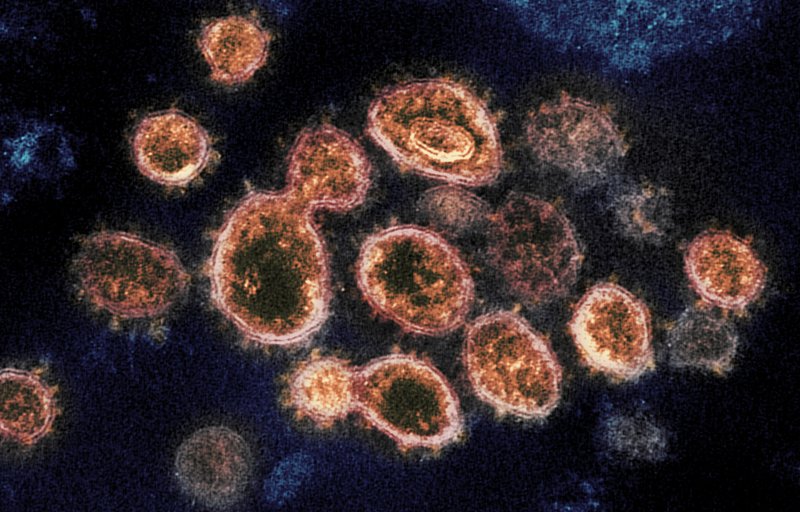Manitoba health officials have confirmed the first case of the COVID-19 P.1 variant in the province.

The variant, first detected in Brazil, was discovered in the case of a person from the Interlake-Eastern health region, the province said in a release Thursday.
The strain, which has the potential to lower the effectiveness of some vaccines approved for use in Canada, was first detected in January in four Japanese travellers who had returned from Brazil’s Amazon region.
Canada’s first case was reported in a person who had travelled back to Toronto from Brazil in February. Cases have since been reported in Quebec and the variant has been blamed for outbreaks in British Columbia and Alberta.

According to a provincial online database Manitoba’s lone confirmed P.1 infection is connected to close contact with a known case, but officials haven’t said how they believe the strain made it into the province.
The P.1 variant is believed to be more transmissible and capable of evading prior immunogenicity — or reinfect people who have previously been infected with the original, or “wild,” type of COVID-19.
Emerging research suggests the P.1 variant is up to 2.5 times more transmissible than the original COVID-19 strain. Another study suggests that out of every 100 COVID-19 survivors, anywhere from 25 to 60 could become reinfected if exposed to the P.1 variant.
“The thought is that the P.1 variant spent a fair amount of time in an immunocompromised host. During that time it refined itself, it became highly efficient at getting into cells and infecting people,” Dr. Darren Markland, an intensive care physician at the Royal Alexandra Hospital in Edmonton, has told Global News.
“As a result, it became significantly more harmful because of its ability to rapidly infect a lot of cells in the human body.”

Get weekly health news
It’s the third variant of concern confirmed in Manitoba since the first cases of the B.1.1.7 variant first identified in the U.K. were reported in February.
Since then the province has reported 647 cases of variants of concern, including 87 new cases added to the list Thursday.
According provincial data, 567 of the variants of concern are the B.1.1.7 strain , 20 are the B.1.351 variant first found in South Africa and 59 are as yet unspecified.
Manitoba also reported one new death linked to COVID-19 and 153 new cases Thursday.
The virus’s latest victim is a woman in her 30s from the Interlake-Eastern Health region and her death is the 955th reported in Manitoba.
Of the new cases, the largest number — 73 — are in the Winnipeg Health region, with 57 in the Northern Health region, six in Southern Health region, seven reported in the Prairie Mountain Health region, and 10 in the Interlake-Eastern Health region.
Four earlier cases have been removed due to data correction, bringing the province’s total cases reported since March 2020 to 35,688.
Health data shows Manitoba currently has 1,528 active COVID-19 cases, including 288 active variant of concern infections.
Meanwhile, hospitalization numbers fell slightly Thursday.

There are now 137 people in hospital as a result of novel coronavirus, down from 142 reported Wednesday, and 35 patients in ICU connected to the virus, down two from the day before.
A new outbreak was declared Thursday at the Parkview Place Long Term Personal Care Home in Winnipeg.
Laboratory testing numbers show 2,648 tests were completed Wednesday, bringing the total number of lab tests completed since February 2020 to 613,701.
Manitoba announced 86 new cases and three additional deaths from the virus on Wednesday.
–With files from Rachael D’Amore and The Canadian Press
Questions about COVID-19? Here are some things you need to know:
Symptoms can include fever, cough and difficulty breathing — very similar to a cold or flu. Some people can develop a more severe illness. People most at risk of this include older adults and people with severe chronic medical conditions like heart, lung or kidney disease. If you develop symptoms, contact public health authorities.
To prevent the virus from spreading, experts recommend frequent handwashing and coughing into your sleeve. They also recommend minimizing contact with others, staying home as much as possible and maintaining a distance of two metres from other people if you go out. In situations where you can’t keep a safe distance from others, public health officials recommend the use of a non-medical face mask or covering to prevent spreading the respiratory droplets that can carry the virus. In some provinces and municipalities across the country, masks or face coverings are now mandatory in indoor public spaces.
For full COVID-19 coverage from Global News, visit our coronavirus page.





Comments